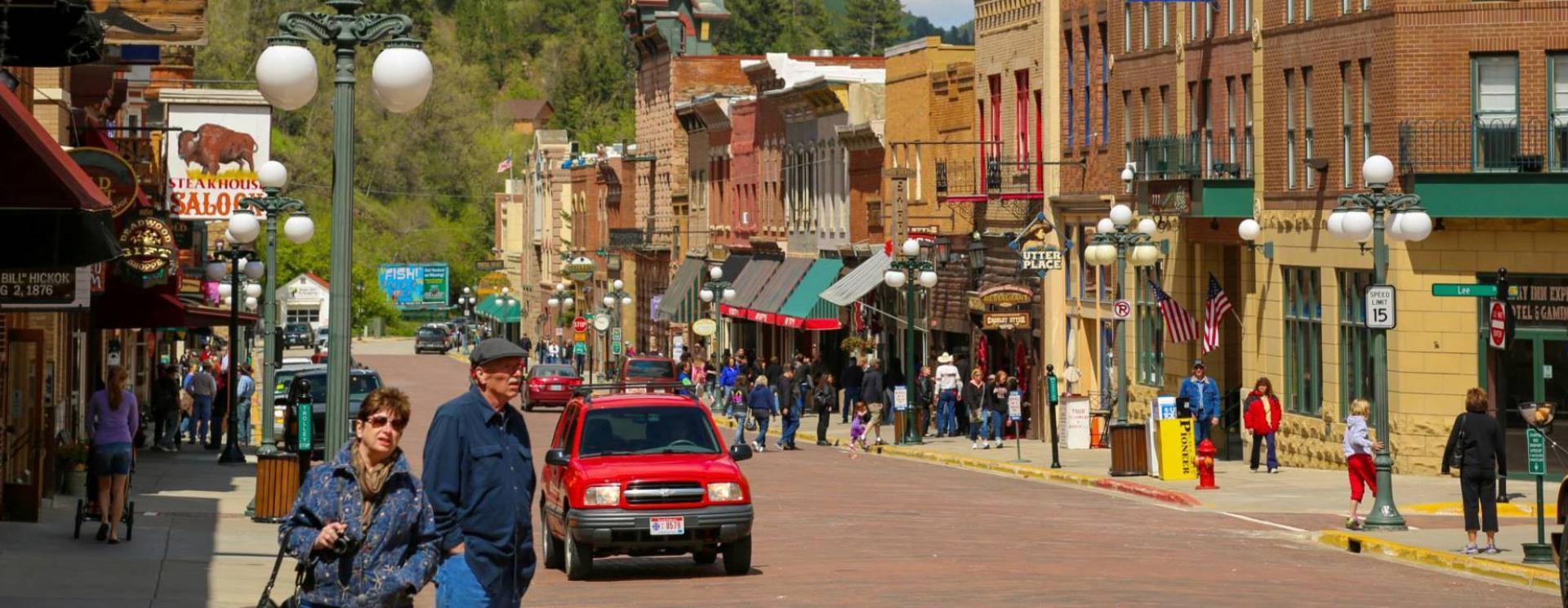South Dakota Resolution Would Put Sports Betting Question on November Ballot in Bid to Boost Deadwood Casino Sector
Posted on: January 30, 2019, 12:22h.
Last updated on: January 30, 2019, 12:22h.
A bipartisan group of South Dakota lawmakers introduced a resolution this week that would let voters decide whether to legalize sports betting in a bid to give Deadwood’s gaming sector a much needed shot in the arm.

SJR 2 would ask voters next November whether the state constitution should be amended to allow the casinos to operate sports books on site. Online sports betting is not on the table.
Tax revenues from sports betting — some $184,678 per year, according to Deadwood Gaming Association (DGA) Executive Director Mike Rodman, who helped draft the amendment — would go towards the historic restoration and preservation of Deadwood, a once lawless Gold Rush town.
Deadwood’s Downtown Downturn
Back in the 1980s, Deadwood was run down and almost broke when someone had the idea that it should reconnect with its gambling past and introduce casinos to the main drag. In 1988, voters agreed, and South Dakota became only the third state to offer casino gambling, after Nevada and New Jersey.
Deadwood’s casinos completely revitalized the town, contributing $6.8 million each year to city coffers since gambling operations launched.
But 30 years later, the market is experiencing a downturn. Gross gaming revenue for the town’s 20 casinos was down 12.4 percent in 2017, a year in which two casinos closed their doors, including Kevin Costner’s Midnight Star Casino, shuttered after a 26-year run.
Black Market Betting
While sports betting is no magic bullet, supporters believe it would attract more people to Deadwood’s casinos and hotels and keep others from leaving to place wagers elsewhere.
“I was sitting at the bar at the Ramkota in Pierre and the guy next to me picked up his phone and made a bet on a football game,” Larry Eliason, executive secretary of the South Dakota Commission on Gaming, told The Grand Forks Herald last month. “Of course, he didn’t know who I was.
“So, we know people in South Dakota bet on sports through bookies now,” he added. “How much they bet and how many bookies there are, we don’t know. It’s difficult to accurately gauge the extent of any activity that’s illegal.”
Commercial casino gaming in South Dakota is limited to Deadwood, but there are also 11 tribal casinos situated throughout the state, operated by seven federally recognized tribes. The amendment would also indirectly authorize the tribes to launch sports betting because they are permitted to offer any form of gambling provided its legal anywhere else in the state
Related News Articles
Most Popular
Mirage Las Vegas Demolition to Start Next Week, Atrium a Goner
Where All the Mirage Relics Will Go
Most Commented
-
Bally’s Facing Five Months of Daily Demolition for Chicago Casino
— June 18, 2024 — 12 Comments
















No comments yet